Spiritual-Cultural
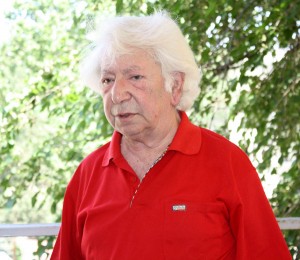
In October 1992, the Sparapet (Commander-in-Chief) called on Armenians to send 500 “mahapart” (diehard) people to save the homeland, meaning 500 patriotic, courageous and dedicated people who would risk their lives to fight at the hottest spots of the war…Today, we need “mahapart” (diehard) intellectuals that will enter the Temple and say ‘Don’t turn my Father’s home into a trade house…’
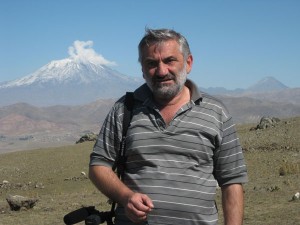
Kurds settled in the Armenian lands in 1940-50s. They haven’t built anything, they live in the houses of the Armenians built 100 years ago. Moreover, they know that sooner or later Armenians would return, so they are not comfortable on our lands. They think Armenian tourists are coming after their grandfathers’ gold. They destroy our churches, forts hoping to find gold.
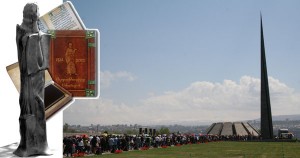
Time inexorably moves forward bringing us nearer to the 100th anniversary of the Armenian Genocide. And though today we can count the witnesses of this horrible crime yet on our fingers however we do not give up our faith for the Great Justice. And as the defender of our creative mind and constructive labour, security of our people and state we have appointed our Army and the Armenian Soldier. And the flags of our nation’s honesty will be raised higher on which our fathers with the light of their spirit have written: “Learn wisdom and admonitions…”.
We have understood yet before that book means thought, knowledge, progress, development, and the sword means will, resolution and strength, i.e. secure Present and Future.
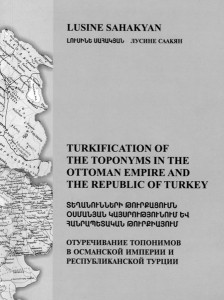
Candidate of Philology science, Associate Professor Lousineh Sahakyan is doing research on our spiritual treasures which are left in Western Armenia. In our newspaper we have already presented her book “Hamshen’s Toponymical Names”. Today we present her new book – “Making Turkish the toponymical names in Ottoman Empire and Republican Turkey” – which was published in Armenian, Russian, English by “Montreal-Arod” in Canada.
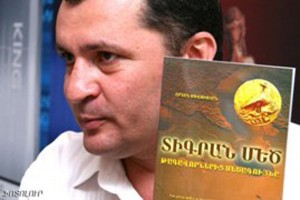
The ancient period of the history of the Armenian nation is badly studied. In the Soviet years the tendency of the equality of the nations didn’t allow to confess that next to the nations having a history of centuries Armenia has a history of millenniums. The tree nations of Transcaucasia – the Armenians, the Georgians and the Azeri were considered the heirs of Urartu – the oldest slaveholding country of the territory of the Soviet Union and it was a complete falsification and nonsense. It was just then when the theory of Armenians as newcomers was created. Developing this theory, the Turkish came to a new nonsense: according to them the newly arrived Armenians have annihilated the Turks of Urartu and have settled in their country.
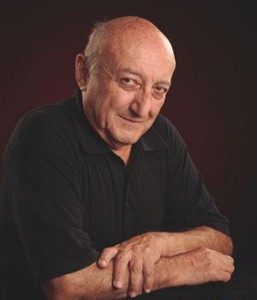
Patriotism means doing work and I know no other way of loving your fatherland. Patriotism is a responsibility for the fate of the fatherland. I often think that the soldiers are standing on the borders of fatherland every moment, one replaces the other but they are always in the rank, they cannot be off their guard, they can’t display unconscientiousness even for a moment and leave the border defenseless. We also must be vigilant every moment, be in the rank and do something for our fatherland for the soldier keeping our border and for each other to the extent of our abilities.
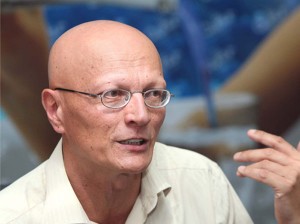
The word Azerbaijan and Azeri have only a history of 90 years, they came out only after 1918. The word Azerbaijan in fact is the deformed variant of Atrpatakan. The Azeri are the followers of Caucasian Tatars. Those nomadic tribes settled in the second half of the 19th century on demand of the czarist government. Constantly moving from one place to another the Caucasian Tatars caused a lot of trouble and the Russian government threatened to expel them from the borders of the empire if they didn’t settle down.











